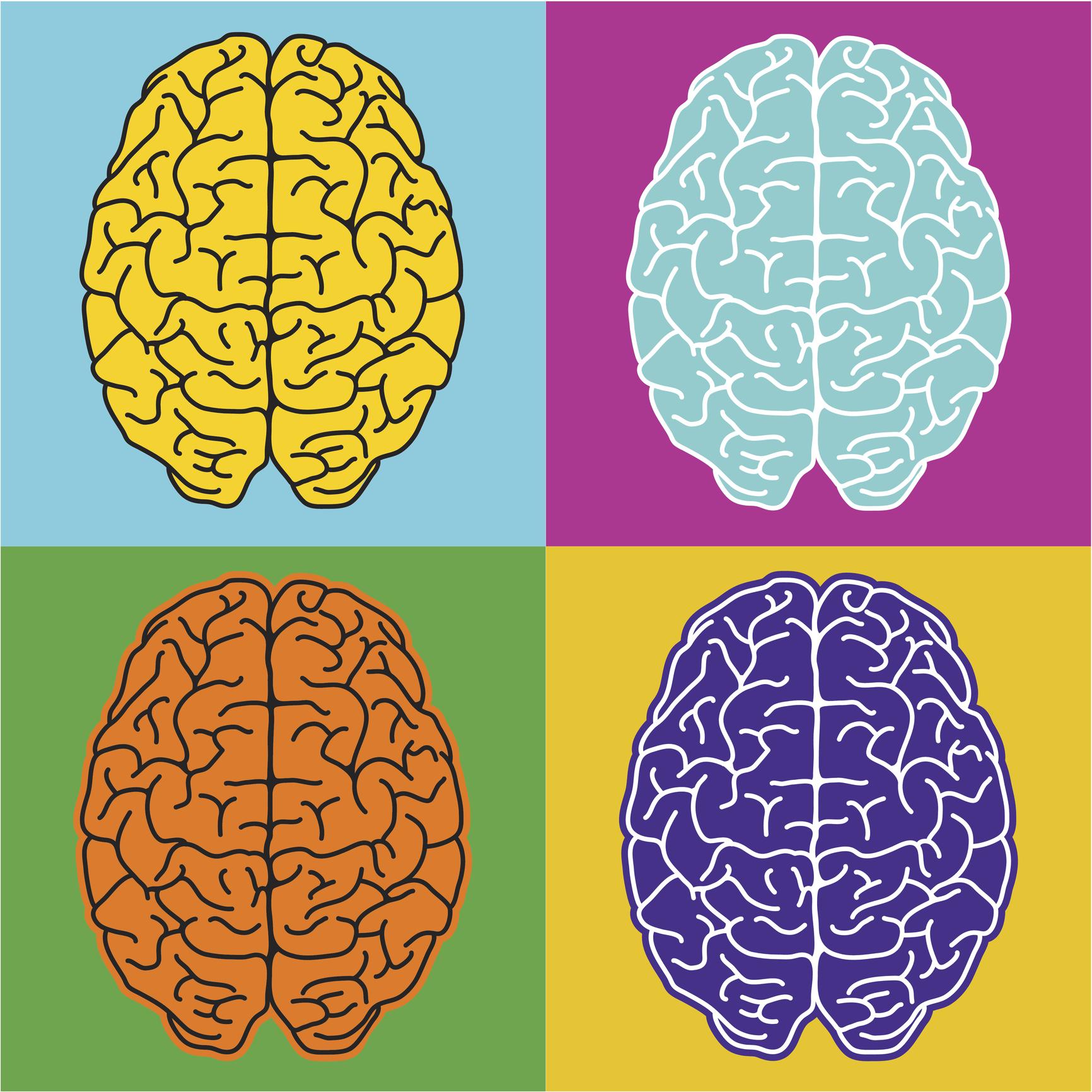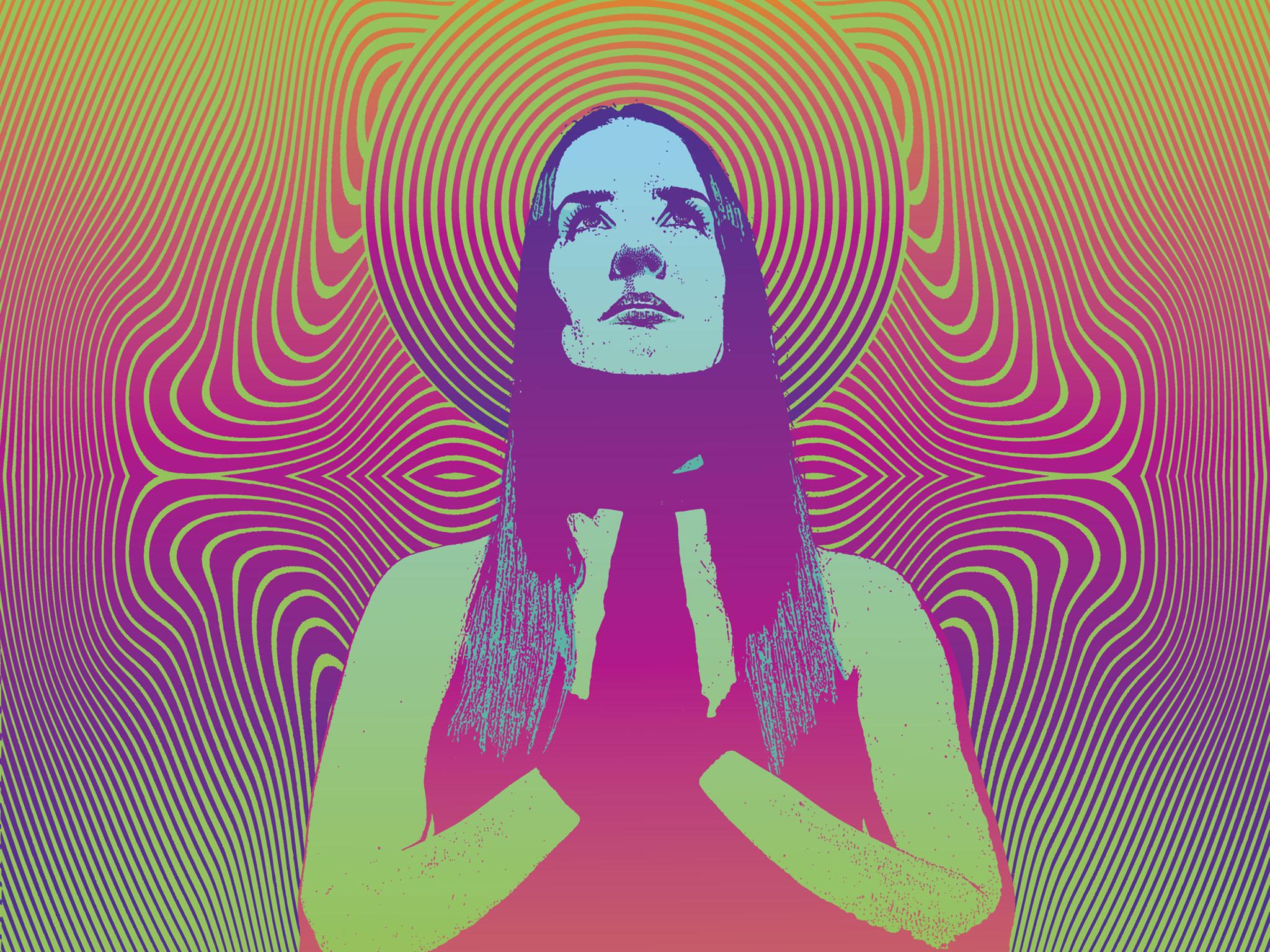Why psychedelics could be the new class of antidepressant
Growing evidence suggests that hallucinogenic drugs can help quell depression. Following the government’s review of medicinal cannabis last month, Jack Dutton asks whether we are at a turning point in drug policy
In a lab in Basel in April 1943, Swiss scientist Albert Hofmann accidentally touched his hand with his mouth while he was synthesising a chemical intended to stimulate respiration and the nervous system. After ingesting the drug, he realised he had made something far more potent: what we now know as LSD. In the 1950s and 1960s, thousands of LSD studies were carried out after a group of pioneering psychiatrists showed that hallucinogenic drugs had therapeutic potential. It became the age of psychedelics.
In the 50 years since this golden era, scientific progress in psychedelic research has been limited. A backlash against the hippy counterculture – “the war on drugs” – halted research into psychedelics. In 1971, the UK parliament introduced the Misuse of Drugs Act, classifying psilocybin, LSD and DMT as illegal class A drugs.
However, this year could see a watershed moment in British drug policy. After the government rejected the use of medicinal cannabis for a six-year-old epileptic boy who had 3,000 seizures a year, the home secretary Sajid Javid ordered a review of the drug being used for therapeutic purposes.
Only weeks after the cannabis review was announced last month, the London-based Psychedelic Society, a campaign group that believes that psychedelics can improve wellbeing, launched its Psychedelics for Mental Health campaign. The launch discussed the rescheduling of psilocybin, the psychedelic compound found in magic mushrooms, from schedule 1 to schedule 2.
The government sees schedule 1 drugs – including LSD, MDMA and cannabis – as having no therapeutic value, meaning it is illegal to possess or prescribe them. Schedule 2 drugs – such as methadone and diamorphine (heroin) – can be prescribed and legally possessed by pharmacists and doctors. Rescheduling a drug from schedule 1 to schedule 2 makes it much cheaper to conduct research into its effects.
“It feels like the narrative around these substances is changing very quickly,” says Stephen Reid, the founder of the Psychedelic Society. “We anticipated that now would be a good time to make a serious push for rescheduling. What we didn’t know when we started planning the campaign was that there would be this news around cannabis. It is a further sign of how fast things are changing.”
Depression is a growing problem and antidepressants continue not to work for up to half of the people who take them, according to research published in the journal Brain, Behaviour and Immunity. Reid and other representatives of the society believe that psychedelics could potentially treat depression.
Psilocybin and depression
There have been several studies that support the society’s theory. One study, led by Dr Robin Carhart-Harris, head of psychedelic research at Imperial College London tested 20 participants who were suffering from severe depression. Dr Rosalind Watts, clinical psychologist at Imperial College London, who was also involved in the study, says that participants went through psilocybin and therapy sessions with a “guide”, a therapist who would interact with them when they were taking the drug. A psychiatrist also interviewed the participants.

After three months, the antidepressant effects were found to be greater for those taking psilocybin than for people taking typical antidepressants and therapy. Patients said they went from feeling “totally disconnected” with themselves and the world to “connected”, and from repressing and avoiding emotions and memories to accepting them.
Watts is about to start work on her next study, which compares the effects of psilocybin with a leading antidepressant, escitalopram. Unlike antidepressants, which are taken daily, psilocybin therapy would take place several times over a series of months, with top-up sessions every few months until the patient decides that they no longer need it.
If psilocybin therapy hits the mainstream, psychiatrists would need training for the new type of therapy, which would cost time and money. It also helps if the “guide” has had their own psychedelic experiences, so they can better understand the patient’s.
Hyper-flexible pathways
Neuroscience suggests that psilocybin causes the default mode network (DMN) – the part of the brain that is active when you’re not focused on the outside world – to temporarily deactivate. Watts describes the DMN as the “safe network”, the part of the brain that ruminates and worries.
The DMN is protective and considered evolutionarily adaptive, but it can become overly critical. When this occurs, people ruminate and worry more, bringing out depression.
I was able to question my life through this ‘higher consciousness’ – it was me but a very wise part of me
Watts says that psilocybin can make these brain communication pathways “hyper-flexible”. Following a therapeutic dose of psilocybin, she believes that for around two weeks, patients should start new habits and hobbies, to help them get out of the depressive cycle. If they don’t do this during the two-week window, the depressive symptoms may return sooner.
“People get stuck in their heads, it’s like a prison,” she says. “When that stops, it allows people to get in touch with their feelings, their bodies and their senses.”
Watts believes that psilocybin could be particularly effective as a way of treating depression when combined with therapies such as Acceptance and Commitment Therapy (ACT), as well as other group therapies. ACT is not about eradicating suffering; it’s about accepting your suffering and trying to live a meaningful life regardless. Watts believes that psilocybin induces similar feelings, complementing ACT well.
“This combination could lead to a really good treatment model, where people don’t just get well for two months, but really manage what they’re going through and experience joy and meaning.”
After Watts’s study, one participant compared antidepressants to taking a painkiller for a toothache: you just numb the pain, but you don’t get to the source of the problem. “Psilocybin gave him an understanding about the root causes of his distress and he could change those,” she says. “Many people described how antidepressants made them feel numb and more disconnected.”
Other psychedelics
Psilocybin isn’t the only psychedelic drug that has shown potential to treat depression. Studies indicate that ketamine and LSD could help treat the condition. A recent study into Amazonian psychedelic ayahuasca in the journal Psychological Medicine suggests that it could also be used for hard to treat depression.
People get stuck in their heads, it’s like a prison. When that stops, it allows people to get in touch with their feelings, their bodies and their senses
Leon, a 29-year-old Brazilian man who has struggled with depression for eight years, turned to psychedelics to try and cure his condition. In his early twenties, he developed severe depression and after researching the potential of psychedelics, he decided to take part in an ayahuasca ceremony at a Santo Daime Church in Rio de Janeiro, one of several Brazilian religions that use ayahuasca as a sacrament. He had already tried 12 types of antidepressants and none of them worked for him long term.
Leon felt antidepressant effects for 10 days after the ayahuasca ceremonies. The drug helped him analyse personal topics such as being closer to family members and although he didn’t find the experience easy, it made him more accepting and able to face his fears.
“I was able to question my life through this ‘higher consciousness’ – it was me but a very wise part of me,” he says. “It was questions and answers most of the time and this is was highly therapeutic – I could analyse a lot of things in my life with a new perspective.
“This higher consciousness always gave me a to-do list and for someone with depression this is a very good thing; it takes you out of your comfort zone.”
‘Lose-lose situation’
Further research, following the rescheduling of psychedelics, could help people like people Leon who suffer from depression. The scheduling of drugs differs to the classification of drugs; classification is related to controlling access to drugs and imposing sanctions on those who possess and use them.
“It’s bizarre why the scheduling of drugs even exists,” says David Babcock, CEO of drug research charity DrugScience. “The supposed theory behind it is that drugs schedule 1 are deemed to have either no therapeutic value or to be potentially harmful to the user.”
“In my mind, that’s just ridiculous, because there are many drugs in schedule 1 – including psilocybin, LSD, ketamine, MDMA and cannabis – and we have evidence that all these drugs have a therapeutic use.”
Babcock calls it a “lose-lose situation” as drugs are often labelled schedule 1 because scientists don’t know how dangerous or useful they might be, but the fact that they’re schedule 1 means it is harder to research how safe they are.
Road to rescheduling
Dr James Rucker, head of psychedelic research at King’s College London, says more questions need to be answered before the UK government would think about rescheduling psilocybin.

“The most important question is: ‘is it safe?’ and that’s what we’re answering at the moment,” says Rucker.
Rucker is organising three trials at the Institute of Psychiatry at King’s College London designed to answer that question, but the funding for these trials can be hard to come by. King’s College London and Imperial College London are the only places in the country currently researching the effects of psilocybin on mental health conditions, according to Watts. She adds that she is “one of the lucky ones” who receives some funding, but it often runs out.
Building a coalition
Although challenges lie ahead, the Psychedelics for Mental Health Campaign is gaining momentum. Caroline Lucas MP, the former leader of the Green Party, has recently backed the campaign.
The most important question is: ‘is it safe?’ and that’s what we’re answering at the moment
The movement has also seen support from popular musicians, including Jon Hopkins, who told The Guardian in April that psilocybin inspired his latest album, Singularity. Among others, the project has also received backing from founder of DrugScience and the government’s former chief drugs adviser, Professor David Nutt; The Beckley Foundation; and publication Live Learn Evolve.
“At this stage, it’s about building a coalition,” says Reid. “There’s never been a serious coalition before of organisations and high profile individuals calling for change in this area. This is now backed by a number of leading drug policy institutions in the UK.”
The Psychedelic Society is waiting until the review of medical cannabis is complete, though it’s not entirely clear about how long that will take. Reid anticipates it taking a few months before he looks to begin bringing a case to the Home Office.
“If there is a decision to change the schedule of cannabis, I think that will set an excellent precedent for other substances being rescheduled,” he says. “The first intention off the back of the cannabis review is to push further on psilocybin.”
The Psychedelic Society is planning on doing some extensive polling of the current state of attitudes on drugs policy in the UK. From there, it will work out the best calls to make for manifestos in the next general election.
Although there is still plenty of ground to make up since the Seventies, Reid is optimistic.
“I hope there will be much, much stronger suggestions than simply rescheduling by the time 2022 comes around,” says Reid. “Jeremy Corbyn, for example, has already backed the decriminalisation of small amounts of medical cannabis and the government seems to be rescheduling it. Things are moving very, very quickly.
Join our commenting forum
Join thought-provoking conversations, follow other Independent readers and see their replies
Comments